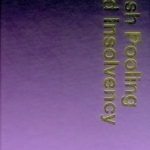Cash Pooling and Insolvency: A Practical Global Handbook
BookThis item doesn’t have any media yet
2016 | Law
'Cash is king' - and, presumably, will remain king for a long time to come. This viewpoint is even more relevant since the 2008 international financial crisis. Banks are still hesitant to provide credit lines to companies, whether national or cross-border. High interest rates are charged on debt but hardly any interest is paid on credit amounts. More than ever before, companies need to limit both debit and credit amounts. Pooling cash within a corporate group or among a number of companies enables the best use of the funds available at as little cost as possible, thus strengthening the financial position of the companies involved. Cash pooling is thereby a means of reducing the risk of insolvency during difficult economic times. The first edition of this book, published in 2012, was very well received. Since then, there have been a number of reasons to update the information it contains: new case law, new national legislation and recent EU initiatives. Furthermore, chapters on Estonia, Latvia and Lithuania have been added to the already impressive number of jurisdictions covered.This title, published in association with the International Bar Association, draws together leading practitioners from a wide range of countries, who together provide detailed analysis on the provisions in their jurisdiction for cash pooling and insolvency.
Each chapter follows the same template for ease of reference; topics featured include specific legal requirements from various perspectives, the liability of company directors, banking requirements, regulatory requirements and tax. This practical handbook is an essential guide for any insolvency professional, in-house counsel or adviser in banking and finance.
Related Items:
| Published by | Globe Business Publishing Ltd |
| Edition | Unknown |
| ISBN | 9781911078166 |
| Language | N/A |
Images And Data Courtesy Of: Globe Business Publishing Ltd.
This content (including text, images, videos and other media) is published and used in accordance
with Fair Use.
